wars
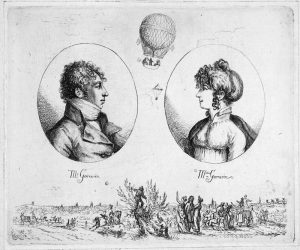 Jumping out of a perfectly good airplane…known by most of us as a parachute jump…is something that the majority of us would probably not do. Still, there are many people that love to jump, and others who would love to try it. I would have thought that this was a rather new hobby, and a even fairly new way to fight fires or fight wars, but I would be wrong. The first parachute jump is said to have taken place in 1797…yes, I said 1797!! How could that be? There weren’t even any planes?
Jumping out of a perfectly good airplane…known by most of us as a parachute jump…is something that the majority of us would probably not do. Still, there are many people that love to jump, and others who would love to try it. I would have thought that this was a rather new hobby, and a even fairly new way to fight fires or fight wars, but I would be wrong. The first parachute jump is said to have taken place in 1797…yes, I said 1797!! How could that be? There weren’t even any planes?
That first parachute jumper was André-Jacques Garnerin from a hydrogen balloon 3,200 feet above Paris. Military jumpers jump at altitudes between 15,000 feet and 35,000 feet…which seems a bit high to me, but what do I know. The lowest altitude to jump is an almost suicidal 100 feet. That put Garnerin’s jump on the low end of the safe spectrum. Garnerin first came up with the idea of using air resistance to slow an individual’s fall from a high altitude while he was a prisoner during the French Revolution. Although he never employed a parachute to escape from the high ramparts of the Hungarian prison where he spent three years, Garnerin never lost interest in the concept of the parachute. He thought that given enough height, he could have escaped from that prison.
After he was released, he continued to experiment with the idea. Then in 1797, he completed his first parachute. The parachute consisted of a canopy 23 feet in diameter, attached to a basket with suspension lines. He was finally ready. On October 22, 1797, Garnerin attached the parachute to a hydrogen balloon and 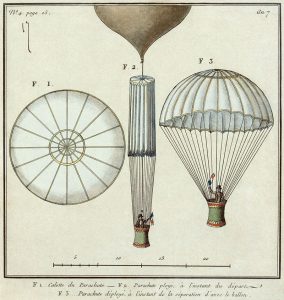 ascended to an altitude of 3,200 feet. He then climbed into the basket and cut the parachute loose from the balloon. To say it was a perfect trial, would be an epic mistake. Garnerin had failed to include an air vent at the top of the prototype, and he oscillated wildly in his descent. Nevertheless, he landed shaken but unhurt half a mile from the balloon’s takeoff site. Unless you are an expert on parachutes, or even an amateur, you probably wouldn’t know about the vent hole. Nevertheless, it is quite important. I would expect that Garnerin’s wife would have been ready to choke him for trying something so crazy, but I would be wrong. In 1799, Garnerin’s wife, Jeanne-Genevieve, became the first female parachutist. I guess he married a woman who was as much an adventurist as he was. They continued on with their work, and in 1802, Garnerin made a spectacular jump from 8,000 feet during an exhibition in England. Unfortunately, he died in a balloon accident on August 18, 1823 while preparing to test a new parachute.
ascended to an altitude of 3,200 feet. He then climbed into the basket and cut the parachute loose from the balloon. To say it was a perfect trial, would be an epic mistake. Garnerin had failed to include an air vent at the top of the prototype, and he oscillated wildly in his descent. Nevertheless, he landed shaken but unhurt half a mile from the balloon’s takeoff site. Unless you are an expert on parachutes, or even an amateur, you probably wouldn’t know about the vent hole. Nevertheless, it is quite important. I would expect that Garnerin’s wife would have been ready to choke him for trying something so crazy, but I would be wrong. In 1799, Garnerin’s wife, Jeanne-Genevieve, became the first female parachutist. I guess he married a woman who was as much an adventurist as he was. They continued on with their work, and in 1802, Garnerin made a spectacular jump from 8,000 feet during an exhibition in England. Unfortunately, he died in a balloon accident on August 18, 1823 while preparing to test a new parachute.
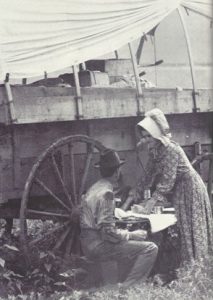 When we think of the Old West, the Pioneer movement, the Gold Rush, and generally, the settling of the United States, our minds immediately go to the brave men who fought the Indians, ran the wagon trains, weathered the harsh winters looking for their fortunes, and fought in the wars to make this a free nation, but seldom do we think of the anonymous heroes of that time…the women. There is a saying, “Behind every great man there’s a great woman.” that saying is one reference to the many women who have set aside their own comforts to support their man in the goals and dreams he has. In many ways that saying is the picture of the Pioneer woman, but it actually leaves something out. Just because her man did not become famous, doesn’t mean that the woman was any less behind him, supporting him in all he did.
When we think of the Old West, the Pioneer movement, the Gold Rush, and generally, the settling of the United States, our minds immediately go to the brave men who fought the Indians, ran the wagon trains, weathered the harsh winters looking for their fortunes, and fought in the wars to make this a free nation, but seldom do we think of the anonymous heroes of that time…the women. There is a saying, “Behind every great man there’s a great woman.” that saying is one reference to the many women who have set aside their own comforts to support their man in the goals and dreams he has. In many ways that saying is the picture of the Pioneer woman, but it actually leaves something out. Just because her man did not become famous, doesn’t mean that the woman was any less behind him, supporting him in all he did.
Pioneer women were there, on the home front, working hard all day trying to keep their house clean in a rugged windswept frontier. Her floors were often made of dirt, and yet she swept them. The water came from a well, or a nearby creek, and she had to haul it into the house, because her man was off hunting to bring in food for the family. The house was crudely constructed with logs and often had a sod roof, and she was right there working like a man beside her husband to get that house built. She watched over the children, and kept them safe from the many perils that were a daily encounter. From snakes, to bears, to mountain lions, to Indians, she did what she needed to, even to the point of handling a gun as well as her husband did. And yet, history looked at her as the weaker part of the partnership, the one who needed to be sheltered and protected. History looked at her as if she could not 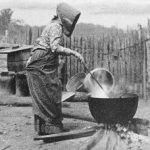 even bear to hear about certain things, because they might be too upsetting to her. In reality, they had vastly underestimated their women.
even bear to hear about certain things, because they might be too upsetting to her. In reality, they had vastly underestimated their women.
When the men got hurt, and the garden needed to be cared for, the women would till the ground…fighting with the tiller behind a horse, and winning the battle. These women took care of the house, the children, the sick or injured husband, and the garden or other crops, all without batting an eye. These women knew all about the hardships of frontier living, and when the going got tough, they didn’t turn and run back east. When the Indians attacked, they stayed and fought with their men. They could not afford to hide in a cellar, their hands were needed to hold a gun. They even faced the Indians alone, when their men were away, becoming excellent negotiators, who were able to make a trade of their wares that, in the end saved their own lives and the lives of their families. They were determined to make this new frontier work, and for the most part, they did it all without making a name for themselves. Sometimes, when we look up ancestors in historic archives, these women are either listed only as Mrs, acknowledging only the husband’s name, or they were listed only as the wife of their husband. Their true identity sometimes remains forever a mystery, and yet, they were heroes…but, they were anonymous heroes. The great men they stood behind, thereby making these men successful, may have been heroes of the frontier, and their name may have been one that every history book told us all about, 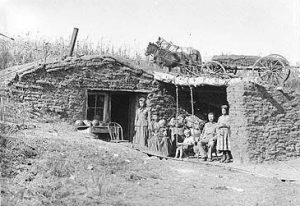 but their wives, who worked quietly beside them, remained unknown. We knew about the exploits of the men, the towns they founded, the travels they made exploring ever westward, but the women who were there with them, cooking the meals while the men talked, cleaning up afterward alone, delivering their babies often with only the help of their husband, carrying a baby, while weeding a garden, and feeding their family before themselves, going hungry, if necessary, to make sure the family was taken care of…these women rarely made the history books. Their job must have seemed to mundane to be considered adventurous, but without their contribution, this nation would not have become the great Republic that it is.
but their wives, who worked quietly beside them, remained unknown. We knew about the exploits of the men, the towns they founded, the travels they made exploring ever westward, but the women who were there with them, cooking the meals while the men talked, cleaning up afterward alone, delivering their babies often with only the help of their husband, carrying a baby, while weeding a garden, and feeding their family before themselves, going hungry, if necessary, to make sure the family was taken care of…these women rarely made the history books. Their job must have seemed to mundane to be considered adventurous, but without their contribution, this nation would not have become the great Republic that it is.
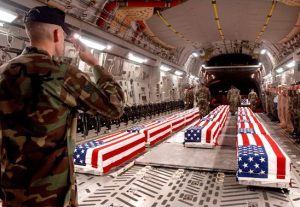 Memorial Day…the day we set aside to remember the heroes of our wars, who paid the ultimate price for the freedoms we hold dear. The men and women who were killed in the attack on Pearl Harbor come to mind, as do those lost on the beaches of Normandy, but there are so many others. From the fliers, to the foot soldiers, to the sailors…men and women, from the Revolutionary War, to the War on Terror, have set aside their goals in life, left their families at home, pushed back their fears, and done their duty to serve their country, and for so many of them, it was a one way ticket over there. They fought and died so that someone they didn’t know could be free and have the rights that so many take for granted. They looked away when they were protested, but deep down they wondered why people didn’t understand. They tried not to watch the news of death and destruction. They just did their job, until they lost their lives in a war they wished had never started.
Memorial Day…the day we set aside to remember the heroes of our wars, who paid the ultimate price for the freedoms we hold dear. The men and women who were killed in the attack on Pearl Harbor come to mind, as do those lost on the beaches of Normandy, but there are so many others. From the fliers, to the foot soldiers, to the sailors…men and women, from the Revolutionary War, to the War on Terror, have set aside their goals in life, left their families at home, pushed back their fears, and done their duty to serve their country, and for so many of them, it was a one way ticket over there. They fought and died so that someone they didn’t know could be free and have the rights that so many take for granted. They looked away when they were protested, but deep down they wondered why people didn’t understand. They tried not to watch the news of death and destruction. They just did their job, until they lost their lives in a war they wished had never started.
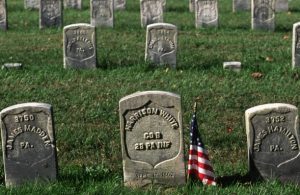 Most of us knew very few soldiers who lost their lives in defense of their country, and some of us may not have known any at all, even though some of our ancestors might have been casualties of a war. I think that sometimes the families of the lost feel alone in their grief. Unless someone has been in that position, they have a difficult time really understanding the depth of the loss. People try to be understanding, imagining how they would feel if it was them, but the reality is that our imaginations are not that good. Those who have lost a loved one to war can never forget the loss or the grief they feel. Grief has no timetable, and some pain just never goes away. No pain is more horrible than losing your child, and losing them in war, seriously compounds that pain.
Most of us knew very few soldiers who lost their lives in defense of their country, and some of us may not have known any at all, even though some of our ancestors might have been casualties of a war. I think that sometimes the families of the lost feel alone in their grief. Unless someone has been in that position, they have a difficult time really understanding the depth of the loss. People try to be understanding, imagining how they would feel if it was them, but the reality is that our imaginations are not that good. Those who have lost a loved one to war can never forget the loss or the grief they feel. Grief has no timetable, and some pain just never goes away. No pain is more horrible than losing your child, and losing them in war, seriously compounds that pain.
Memorial Day, or Decoration Day as it was first called, started three years after the Civil War ended, on May 5, 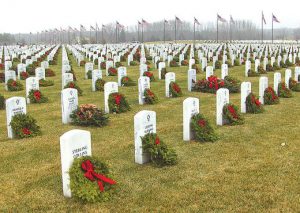 1868. It was established by the head of an organization of Union veterans…the Grand Army of the Republic. Decoration Day was a time for the nation to decorate the graves of the war dead with flowers. Major General John A Logan declared that Decoration Day should be observed on May 30. It is believed that date was chosen because flowers would be in bloom all over the country. The first large observance was held that year at Arlington National Cemetery, across the Potomac River from Washington, DC. It was a day for all citizens to remember the sacrifice of the brave fallen heroes. And to let the families know that their fallen soldier would ever be forgotten. In honor of all the fallen, may you rest in peace. Thank you for your great sacrifice. Your nation is grateful.
1868. It was established by the head of an organization of Union veterans…the Grand Army of the Republic. Decoration Day was a time for the nation to decorate the graves of the war dead with flowers. Major General John A Logan declared that Decoration Day should be observed on May 30. It is believed that date was chosen because flowers would be in bloom all over the country. The first large observance was held that year at Arlington National Cemetery, across the Potomac River from Washington, DC. It was a day for all citizens to remember the sacrifice of the brave fallen heroes. And to let the families know that their fallen soldier would ever be forgotten. In honor of all the fallen, may you rest in peace. Thank you for your great sacrifice. Your nation is grateful.
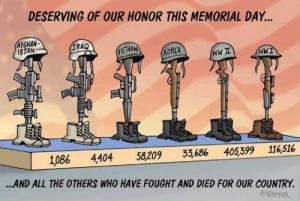 Our country has been involved in so many wars in its relatively short history, protecting both our freedom and many other countries from the oppression imposed by so many evil dictators and nations. Some people don’t think the United States should be the guardian of the nations, but when push comes to shove, the United States is always the one they call to come in and save them. In all reality, the only countries who wish we would just stay out of things, are the ones who have overstepped their boundaries, and are trying to do evil in the helpless nations they have occupied.
Our country has been involved in so many wars in its relatively short history, protecting both our freedom and many other countries from the oppression imposed by so many evil dictators and nations. Some people don’t think the United States should be the guardian of the nations, but when push comes to shove, the United States is always the one they call to come in and save them. In all reality, the only countries who wish we would just stay out of things, are the ones who have overstepped their boundaries, and are trying to do evil in the helpless nations they have occupied.
Of course, no military machine can function without the sacrifice in time and lives of people. Military men and women who are willing to make that sacrifice are a rare breed indeed. True, in years past there was a draft, but even then, there were those who volunteered, like my dad and many others. They saw a need, and knew that they had to answer the call to duty.
Over the course of the major wars the United States has been involved in beginning at World War I, we have lost a total of 619,300 men and women. That is an astounding number of people. Fighting evil is a costly business, both in money, and more importantly in the lives we have lost. Nevertheless, if we allow evil to prevail, we are in a far worse position. That is something every soldier knows all too well. It is what brings them to the point of making the decision to serve…to fight, and give their lives if necessary. It isn’t that they don’t know what they are getting into, because they do. They know that as a soldier, they will be taking the 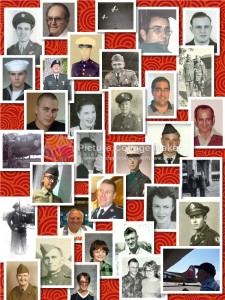 ultimate chance with their life, and they know that they may lose their life. And yet they serve. That is the picture of a true hero.
ultimate chance with their life, and they know that they may lose their life. And yet they serve. That is the picture of a true hero.
There are those who condemn our soldiers for their sacrifice, those who protest, and scream hate at them, but what they don’t really understand is that their very right to protest, scream, and even hate, comes from the fight our soldiers have waged to protect that very freedom. It is a tough job, and often thankless, but they fight because they can see what is right and what is wrong. It is wrong for anyone to steal the freedoms of another human being, and it is wrong for them to try to force their will on others. Soldiers have the vision to see this, and even when hate is aimed at them, they will fight for the rights of those who hate. Yes, soldiers are a rare breed, and they are heroes. They deserve our respect, and they deserve the honor and respect that this day is all about. Happy Memorial Day!! Be sure to thank a Veteran today.
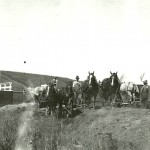
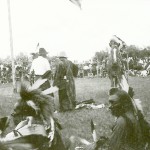 I never knew my Great Grandpa Byer, because he passed away in 1930, long before I was born. Most of what I know of him comes from my genealogy research, pictures I have found, and the stories I have heard from my mom. The first time I remember hearing about him was when I gave birth to my oldest daughter, Corrie. My mother mention that I might want to name her Cornelia, so that it would be after her great great grandpa. I was not willing to go so far as to change the name I had chosen, but the name did attach itself to Corrie anyway, in the form of a nickname…that I loved, by the way.
I never knew my Great Grandpa Byer, because he passed away in 1930, long before I was born. Most of what I know of him comes from my genealogy research, pictures I have found, and the stories I have heard from my mom. The first time I remember hearing about him was when I gave birth to my oldest daughter, Corrie. My mother mention that I might want to name her Cornelia, so that it would be after her great great grandpa. I was not willing to go so far as to change the name I had chosen, but the name did attach itself to Corrie anyway, in the form of a nickname…that I loved, by the way.
My research told me that my great grandfather was born in Russia, which very much surprised me, as I thought that part of the family came from Germany. My mother filled in the blanks there, by telling me that in the 1780’s, my 6th great grandfather, who was concerned because of wars in Europe, and wanting to keep his family, and especially his son safe from the increasing German interest in jumping into the war. So, he moved his family to Russia, where my part of the family would live until, my great grandfather’s family immigrated to the United States. He eventually settled in South Dakota, where he married my great grandmother.
Picture documentation, at the point, places my great grandparents on a homestead in Nebraska. During his time in South Dakota and Nebraska, he befriended many of the Indians in the area. He was well respected by them and was invited to their Pow Wow’s. It is at this point in the family history that I came across another picture that made me wonder about its inclusion in the other family pictures. It still seems odd to me, but my mom assures me with her story, that it indeed fits in the family history. The picture is of a group of men in a pool hall. When I asked mom about the picture, she told me that she didn’t know the men in the picture, but the pool hall 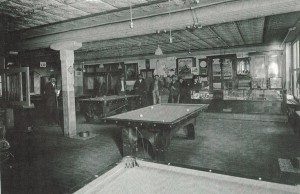 had belonged to her grandfather. I am still trying to figure out how he went from homesteading to a pool hall owner, but that is what he did. I’m sure that like most career changes, the decision was based on the income possibilities, because the main thing is to be able to support your family. The pool hall is not surprising to me because of what it was, but because of the fact that he had been a homesteader and farmer by trade for so long. Things change, as the needs change, and that is as simple as that. He saw a way to make a living, or even supplement the family income, and he did it. It is an interesting twist to my history.
had belonged to her grandfather. I am still trying to figure out how he went from homesteading to a pool hall owner, but that is what he did. I’m sure that like most career changes, the decision was based on the income possibilities, because the main thing is to be able to support your family. The pool hall is not surprising to me because of what it was, but because of the fact that he had been a homesteader and farmer by trade for so long. Things change, as the needs change, and that is as simple as that. He saw a way to make a living, or even supplement the family income, and he did it. It is an interesting twist to my history.

